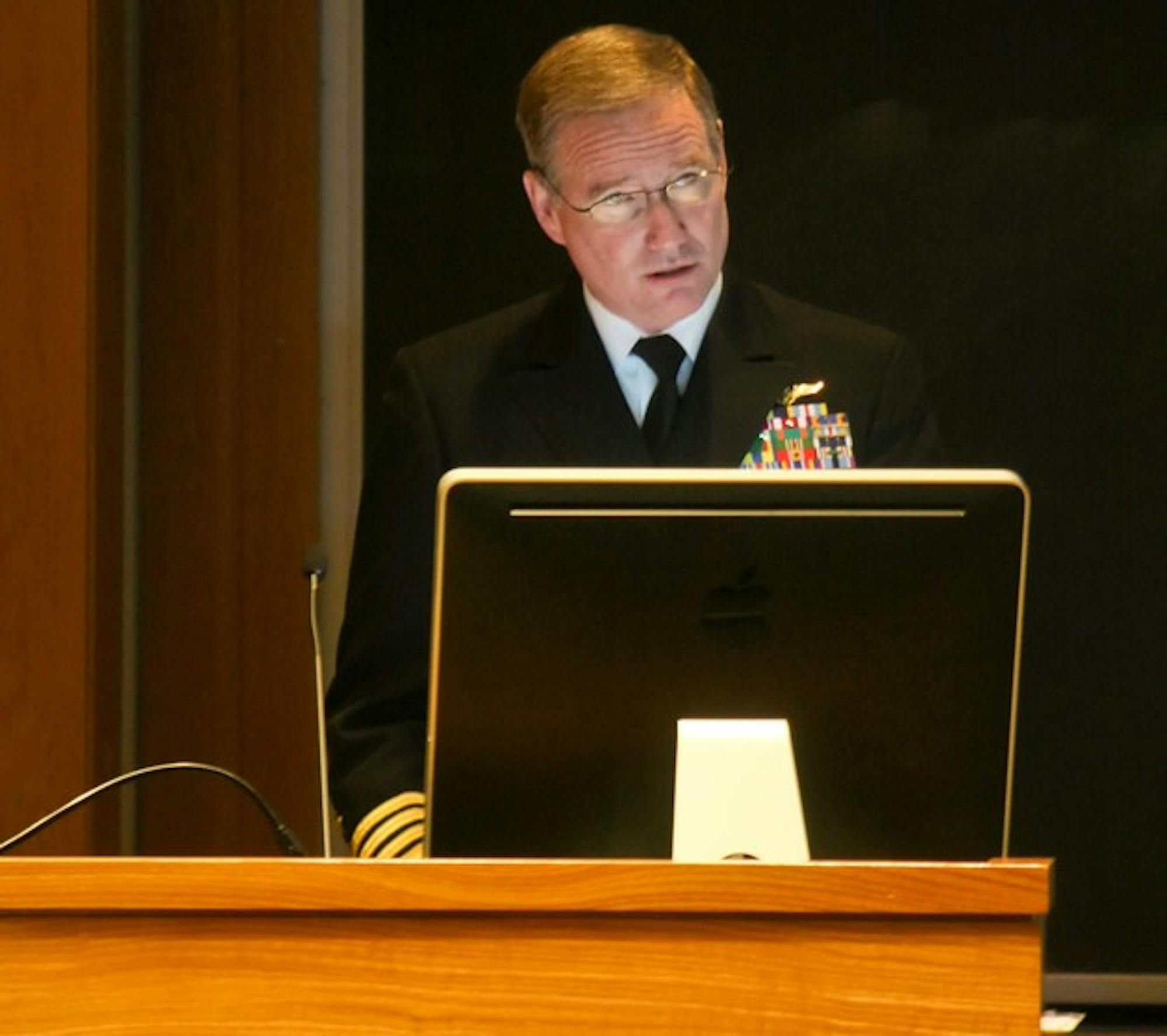"The character of today's challenges cuts across boundaries and borders and demands solutions that are rapid," Walsh said.
The increasing flow of information across the globe means that breaking news can quickly incite large-scale violence, according to Walsh. He cited the Jyllands-Posten Muhammad cartoon incident, in which a cartoon in a Dutch newspaper sparked protests among Muslims throughout the world, as an example.
A unified maritime strategy will allow U.S. forces to respond to rapidly developing instability more effectively, Walsh said.
Increased collaboration with coalition forces can act as a "force multiplier," Walsh said. Nonetheless, the U.S. military is still hesitant to share information with allies, according to Walsh.
Walsh acknowledged that the current recession will have an impact on the Navy's programs. Because of economic uncertainty, personnel retention is up. A combination of increasing costs and budget cuts, however, is undercutting the Navy's "ability to operate ships at the level we have in the past," Walsh explained.
When asked about the recent increase in piracy of the coast of Somalia, Walsh recounted an incident in 2006 when his own crew intervened in a pirate attack near Kenya.
"We found that piracy had been going on for a long time and the captains and owners of vessels had not reported it because of fear of insurance rates rising," Walsh said.
He argued that until piracy is no longer profitable, it will continue to be a problem. Action by either the Somali government or more direct U.S. intervention will probably be necessary, Walsh said.
Walsh also called for a greater understanding of other cultures, particularly regional religions, in order to improve America's international standing.
"We don't necessarily see either the problem or the solution when we look at the spiritual aspects of what's in the Middle East," Walsh said. "This part of the world has been uncertain and resistant to change because the pace and reach of that change is an assault on traditional and tribal values."
Walsh also pushed for an increase in the number of "critical thinkers" within the military and a focus on ethical education.
When asked whether he would recruit more officers from institutions like Dartmouth, he joked, "I'll pick them up when they come out of Wall Street."
He also suggested that Dartmouth students expand their definition of service as simply "doing something nice for someone less fortunate than yourself" to include the idea of service as a part of the military.
Walsh gave his presentation, "The Maritime Strategy: Representing the National Interest on the International Stage," as a part of the Phillips Family Conference on Conflict and Reconciliation.
Walsh previously served as the commander of the U.S. fifth fleet. He also led the recent assessment of operations at the U.S. detention center at Guantanamo Bay, Cuba.




